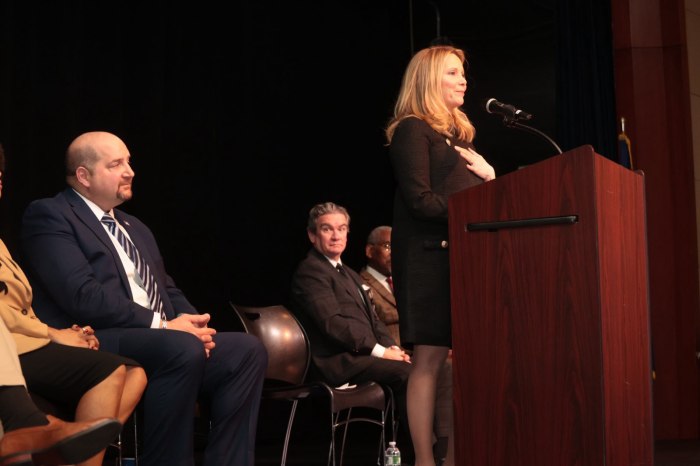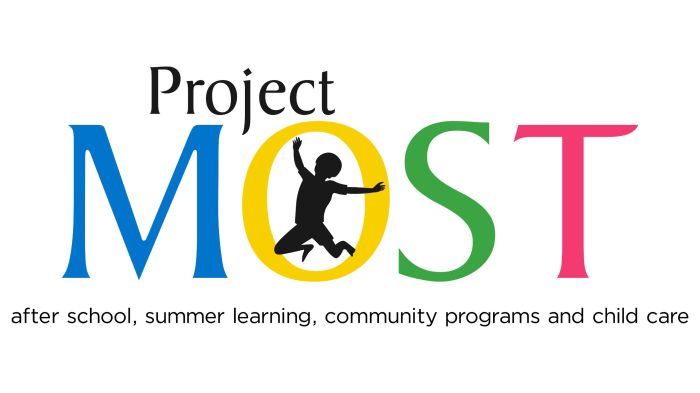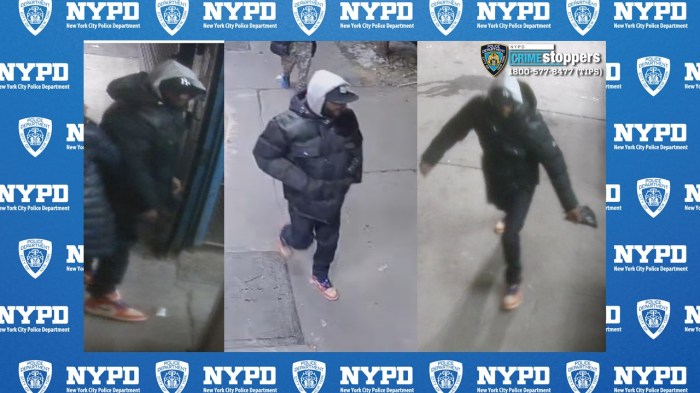By Joaquin Sapien, ProPublica
New York State Assembly Bill 1533 does not seem to ask for terribly much: The proposed legislation would grant parents in custody proceedings the legal right to see the court-ordered expert evaluations judges use to decide the fate of thousands of families every year.
No one, however, is overly optimistic the bill will become law, including its sponsor. Assemblywoman Helene Weinstein has seen the bill languish for five straight years.
“I’ve been in the legislature a while,” said Weinstein, who was first elected to the assembly in 1980. “I have had some bills that pass in months, and I have had some that take almost 20 years.”
The expert reports at issue are known formally as “forensic evaluations,” and they are often enormously influential in the most vital kinds of decisions: which parent gets custody of their children; whether either parent is fit, and thus if foster care is safer and more appropriate; if claims of abuse — by a spouse or by a child — are trustworthy. The evaluations are performed by psychologists or psychiatrists, typically ordered up by the judges overseeing the proceedings.
Unlike at least 24 other states, however, judges overseeing such cases in New York are not obligated to share those reports with the parents, Weinstein said. As a result, judges often only allow attorneys for the parents to have the reports and sometimes bar them from sharing them with anyone else, including their own clients. Some judges will allow parents to see copies, but not keep them. Some judges will allow both parents and their attorneys to have copies. In the rare cases in which judges do authorize parents to get a copy, they are typically prevented from sharing it with anyone else, making it difficult, for instance, to have it reviewed by an outside expert.
Joan Meier, a professor of clinical law at George Washington University in Washington, D.C., said the state of affairs in New York amounted to a “profound deprivation of due process.”
“Before I started doing this work, I never would’ve dreamed that you could be a parent in custody litigation and have someone evaluate you and not be allowed to see the report,” Meier said.
Weinstein’s efforts to rectify the situation have so far proven frustrating. After a slow start, the proposal finally made it out of her committee and passed the assembly unanimously last year. But it has yet to get to a similar full vote in the state Senate. This year, in fact, not a single state senator has yet chosen to sponsor Weinstein’s bill.
“We want to make sure the courts get these decisions right,” Weinstein said in a recent interview with ProPublica. “The best way for the court to get it right is to make sure that both the lawyers and the parents have a chance to review these reports. No one will know if there are errors in a report better than the parents themselves.”
To date, opponents of Weinstein’s proposal have cited fears that the reports, if shared with parents fighting over custody, will somehow be made public as part of smear campaigns. The reports often include highly sensitive details of family dynamics: allegations of adultery, substance abuse, neglectful parenting and everything from petty squabbles to violent fights.
The Women’s Bar Association of the State of New York, for instance, has issued a position statement that “strongly opposes” releasing the reports to litigants. Its members are concerned that spiteful spouses, particularly abusive husbands, might take advantage of the reports.
“If parties are given copies of forensic reports, an abuser can easily inflict more abuse on the parent by making the contents of the report public,” the position statement says.
As ProPublica has reported, psychologists and psychiatrists have enormous discretion in what goes in the reports, and in New York’s overworked family and matrimonial courts, judges routinely rely on the reports to make decisions and move caseloads.
The work of the evaluators has been the subject of controversy for years. Some have issued reports without even talking to both parents. Others have been accused of being biased against fathers, and some of being predisposed against mothers. Some use controversial, outdated or even discredited testing methods. New York City’s child welfare agency paid millions over many years for evaluations that a committee of experts empaneled by parent advocates found to be cursory and flawed. The state bar association has long pleaded for greater oversight of the evaluators.
Weinstein told ProPublica the risks of sharing the reports with the very people whose lives they will help shape are overblown. Her proposal would impose sanctions against anyone found sharing the reports in violation of a court order.
Weinstein said that two dozen other states — including California, Colorado, West Virginia and Arkansas — have adopted similar legislation without such problems.
Barbara Kauffman, an attorney who has specialized in California family law for 20 years, told ProPublica she couldn’t recall a single, specific case in which parents shared reports to harm each other.
“It has been my experience that parents determined to denigrate each other will do it, in or out of court, in writing or in testimony, with or without a custody evaluation report,” she said.
“With respect to other states, I don’t know how a parent can contest an evaluation they cannot read,” she said. “As a litigator, I know that knowledge is power, and the more information a person has about what a custody evaluator did or did not do, say or consider, the better equipped that person is to address the merits or problems with the evaluation.”
The idea that parents lack the legal right to see and possibly challenge the expert reports strikes many veterans of New York’s family and matrimonial courts as deeply unfair, even dangerous.
While evaluators’ work in custody and child protection cases has been the target of criticism, these practitioners operate without much in the way of vigilant oversight. Indeed, the state office responsible for investigating the work of psychologists said it is unable to explore complaints of misconduct or incompetence involving matters before the courts because the records are sealed.
Here, again, California differs from New York.
In 2014, the California legislature passed a bill authorizing its Department of Consumer Affairs, which regulates licensed psychologists, full access to custody evaluations when their authors are the subject of complaints.
Kim Madsen, an official within the department, told ProPublica her behavioral sciences unit has investigated several complaints, and already moved to discipline one court-appointed psychologist since the law passed.
New York investigators, on the other hand, routinely reject complaints of evaluators. They tell complainants they can’t access the sealed court records that would give them the ability to act.
The implications of a judge’s discretion concerning forensic evaluations can be especially acute for parents in family court. There, many of the parents are unable to pay for private lawyers and not quite poor enough to qualify for lawyers appointed by the court. Often, then, they wind up representing themselves, meaning they may be completely out of luck if they appear before a judge disinclined to share copies of reports with anyone but lawyers.
Emma Ketteringham helps represent poor parents in child protection cases as managing director of the Bronx Defenders. She said she has fought the courts on this subject.
“There is no law that says a parent or respondent cannot see their mental health evaluation. Despite there being no law, there is a common understanding that parents don’t have a right to them,” she said. “We have pressed on this issue and refused to deny our clients their evaluations or show them copies if they ask for them.”
Weinstein is trying to change that, but her proposal must compete with another. It’s from the Matrimonial Practice Advisory and Rules Committee, which reports annually to New York Chief Administrative Judge Lawrence K. Marks. The committee’s proposal would require all courts throughout the state to allow parents to see the reports, although under strict conditions.
The committee suggested permitting the parents to read the reports in the offices of their attorneys, or in some other unspecified “location,” where they can “make notes about the report.”
Weinstein sees this as a step backward.
“This seems to be more restrictive,” Weinstein said of the proposal. “Often a pro se litigant is working a low-paying job and has other child care responsibilities. To have to go to court and sit there and take notes and not get a copy of it would make things very difficult.”
After nearly four decades in the legislature, Weinstein is used to seeing these battles drag out, recalling that it took nearly two decades to get a measure passed expanding access to orders of protection in family court. But the need for this particular bill still feels urgent.
“This is evidence used to make important decisions. In a criminal trial you ultimately have access to evidence,” she said. “So we’re talking about a person’s liberty or the future of a child’s life. I’m not sure how different that is.”
ProPublica is a Pulitzer Prize-winning investigative newsroom. Sign up for their newsletter.






























